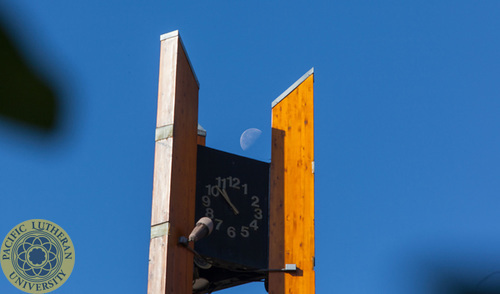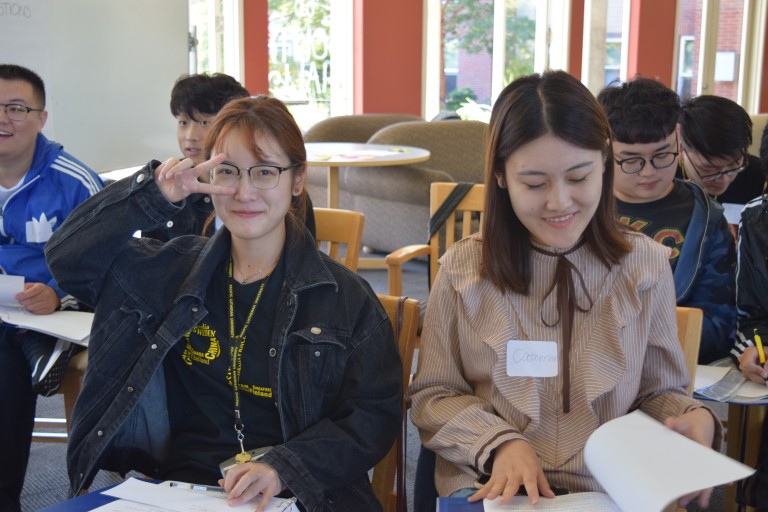One of the most exciting and most challenging things about studying abroad is learning about the culture and laws of your temporary home. On this page, we’ve collected some links, suggestions, and resources for learning about life in the United States and how it may be different from life in China. Additional resources can be found on the International Student Services website: https://www.plu.edu/iss/life-at-plu/us-culture/.
出国留学最令人兴奋和最具挑战性的事情之一就是了解您的临时住所(美国)的文化和法律。 在此页面上,我们收集了一些链接,建议和资源,以了解美国的生活以及与中国的生活习惯有何不同。 您可以在国际学生服务网站上找到其他资源:https://www.plu.edu/iss/life-at-plu/us-culture/
Quick Links
- Incoming Students (homepage)
- Current Students (homepage)
- ABC Program Policies
- Living on Campus
- Staying Healthy
- Life in the US
- Food and Dining
- Campus Life
- Safety (coming soon)
- Financial Matters (coming soon)
- Academics (coming soon)
- Photo Galleries
- Staff and Important Contacts
What's different between your culture and American culture?|您的文化与美国文化有何不同?
Other Resources for Cultural Differences|关于文化差异的其他资源
Read more about the cultural differences between the US and China:
- http://www.etiquetteoutreach.com/blog_new-york-etiquette-guide/bid/92662/cultural-differences-between-america-and-china
- https://goldstarteachers.com/7-differences-between-chinese-and-american-culture/
Tips from the ABC Program Student Coordinator and PLU international students|PLU国际生与ABC项目学生领队的一些建议
In China, we are used to the idea of collectivism, such as working in groups and making close contact with others through constant meeting at meals or casual events. However, in the US, individualism is more common, which promotes the value of independence and self-reliance as a priority. They also believe that a person’s accomplishments matter more than age, tradition, or family background.
For more information, check out: https://healthypsych.com/individualist-or-collectivist-how-culture-influences-behavior/
在中国,我们习惯于集体主义的思想,例如与他人一起工作,通过在吃饭或休闲活动中不断碰面来与他人保持紧密联系。 但是在美国,个人主义更为普遍,人们将优先考虑独立和自力更生的价值。 他们还认为个人的成就比年龄,传统或家庭背景更为重要。
有关更多信息,请查看:https://healthypsych.com/individualist-or-collectivist-how-culture-influences-behavior/
Being on-time is a sign of respect that shows you value the other person’s time. Similarly, when there is an agenda or schedule for a meeting or activity, people generally expect you to follow it. This is also true for working on projects and assignments in groups, where other students may feel disrespected or complain if a member does not turn in their assigned pieces when agreed.
准时是一种表达尊重的表现,表明您珍惜对方的时间。 同样,当有会议或活动的议程或时间表时,人们通常希望您能遵循它。 在小组中进行项目和作业时也是如此,在这种情况下,如果某个成员在小组达成统一意见后不上交分配的作业,其他学生可能会感到不尊重或抱怨。
Giving gifts is not as common in the United States as in China, but it is still considered polite or acceptable in many situations. If someone invites you to their home, it may be appropriate to bring something small (flowers, a bottle of wine, or another small token). Otherwise, gifts are mostly given to close family and friends on certain occasions: birthdays, Christmas/Hanukkah, anniversaries, Mother’s Day, Father’s Day, etc.
In China, when we receive gifts, we often give a gift of equal value to the person in return. In the US, people may not always give something of equal value. They may give something of greater or lesser value, take you out to dinner, or not return a gift at all. They may not consider this rude or want to offend you, but have a different way of thinking about gifts.
在美国,送礼并不像在中国那样普遍,但是在许多情况下,代表礼貌的礼物还是可以接受的。 如果有人邀请您去他们家,最好带些小东西(鲜花,一瓶酒或其他小礼物)。 否则,礼物通常会在某些场合赠与亲朋好友:生日,圣诞节/光明节,周年纪念日,母亲节,父亲节等。
在中国,当我们收到礼物时,通常会给与对方同等价值的礼物。 在美国,人们不一定总是提供同等价值的东西。 他们可能会回礼或多或少价值的礼物,带您出去吃饭,或者根本不回送礼物。 他们可能不会认为这种行为很粗鲁或者冒犯您,只是因为他们对礼物的认知和想法有所不同。
Like most places, cultural stereotypes exist and misunderstandings can happen in the US. People may have stereotypes about you as Chinese students and you may have stereotypes about others. These can cause misunderstandings or problems, but we hope your good judgement and communication skills will help you handle these situations if they come up.
The tips and links on this page should help you understand some of the differences in culture between the US and China, which will help you navigate many miscommunications. If you have more questions about this or encounter anything you need to talk about, though, feel free to talk to your instructor, your student-liaison, Dr. Foy, and PLU’s ISS Center.
像大多数地方一样,在美国存在文化定型观念,并且可能会因此产生误解。 人们可能对中国学生有刻板印象,而对其他人也可能有刻板印象。 这些可能会引起误解或问题,但是我们希望您的良好的判断力和沟通能力能将在遇到这种情况时帮助您。
本页上的提示和链接应帮助您了解中美之间在文化上的一些差异,这将帮助您解决许多误解。 如果您对此有更多疑问或遇到任何需要谈论的话题,请随时与Jesse,Alex,Saralyn,Foy博士和、或PLU的ISS中心聊天或咨询。
Be aware of the laws that are different from those in China:
- Legal drinking for alcohol in the US is 21 years old
- Sexual interaction (verbal or physical) with another person (spouse, partner, or stranger) without their permission is called sexual misconduct, and laws in the US are clearer and stricter than in China. The US recognizes that anyone can commit or be the recipient of sexual misconduct (it is not just something men do to women). Engaging in sexual misconduct can result in legal action and/or consequences from PLU. It’s important to make sure that you understand PLU’s policies on sexual misconduct and how to get permission from others. If you have any questions, you can ask the Office of Student Rights and Responsibilities, the Center for Gender Equity, or your ABC Program staff.
- Smoking is legal in the US but it is illegal in many places to smoke inside bars, restaurants, stores, etc. Also, PLU is a smoke-free campus.
请注意与中国法律不同的法律:
- 在美国,合法饮酒年龄为21岁
- 未经他人许可(配偶,伴侣或陌生人)的性互动(言语或身体)被称为性行为不端(性骚扰),美国的法律比中国的法律更加严格。 美国认识到任何人都可以犯下性行为或成为性不当行为的受害者者(这不仅是男人对女人的行为)。 从事性不端行为可能会导致法律诉讼和/或PLU的通告。 重要的是要确保您了解PLU关于性行为不端的政策以及如何获得他人的许可。 如有任何疑问,可以询问学生权利和责任办公室,性别平等中心或您的ABC计划工作人员。
- 在美国,吸烟是合法的,但在许多地方例如酒吧,饭店,商店等室内内吸烟是非法的。另外,PLU是一个禁烟校园,校园内禁止吸烟。
As international students coming to United States to study/practice English while also learning about the culture and literature, my best advice is to you is to remember one thing – don’t be afraid of speaking/communicating with the domestic students or local residents.
As preparation for this study away to US, we know that you practiced and worked hard on improving your English skills in every perspective – and that you want to continue improving while you are here. However, this improvement will not happen unless practice frequently with people who speak English. PLU has a great environment and friendly community where you can improve your language skills, so we strongly encourage you to speak up with others. Don’t be afraid to get laughed at or confuse other people because we can puzzle out the meaning of your conversation.
You also have many resources to assist you. For instance, the ISS Center (Heather), Angenette, Dr. Foy, myself, and the rest of PLU’s students are willing to help you throughout the academic semester.
Finally….
Be adventurous!! Plan out your own version of traveling around US during the holidays in order to learn/explore more about US culture. It will give you a lot of time to practice your English!
国际学生来到美国不仅是为了学习/练习英语,于此同时也在学习文化和文学。我最好的建议是记住一件事-不要害怕与美国当地学生或当地居民说话/交流。
作为赴美国学习的准备,我们知道您在各个角度上都进行了练习和努力以提高英语水平-并且您想在这里继续有所建树。但是,除非经常与会说英语的人练习,否则这种改善不会发生。 PLU拥有良好的环境和友好的社区,您可以在这里提高自己的语言能力,因此我们强烈建议您与他人交谈。不要害怕被别人嘲笑或迷惑,因为我们会在谈话的同时去理解您想表达的意思。
您也有很多资源可以帮助导您。例如,ISS中心,Angenette, Heather,Dr. Foy,我本人以及PLU的其他学生都愿意在整个学期中为您提供帮助。
最后….
冒险!!计划您自己的假期,在此期间旅游美国以了解或探索有关美国文化的更多信息。这会给您更多时间去练习英语!





